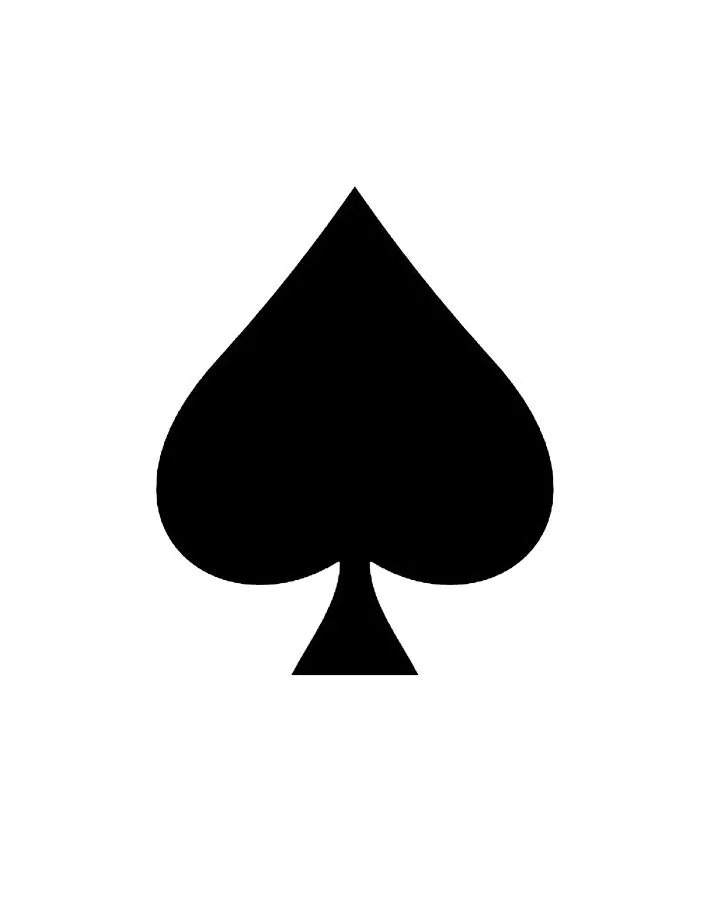domain:savenshine.com
There are certain word choices that differ between classes. Using the words “toilet” or “posh” is a very clear indicator that you aren’t upper or upper middle class.
Washing your hands before eating and being generally obsessive over hygiene standards is middle class, while the upper class generally prefer shabby chic and pick up half-finished meat bones with their hands.
Steretypically, the middle classes are afflicted with status anxiety, and therefore obsess over getting things right. Witness the Dursleys scripting out dinner etiquette before Mr. Dursley’s boss arrives for dinner. Whereas etiquette for the upper classes is just ‘whatever the upper classes do’ so they don’t fuss about it too much.
A classic is Nick Clegg and his wife (now working at Facebook and very PMC) going to dinner with the the Camerons (the Prime Minister and his wife, as upper class as they get) and being shocked when Mrs. Cameron used cheap mayonnaise from a bottle instead of using something fancy or making it herself. Not needing status symbols is the status symbol.
If I add in context are you going to make it visible ?
First encountered it in class in either grade or middle school, cemented by Civ IV in high school.
Finished Final Cut last night, loved it. Started My Brilliant Friend on the train this morning, having heard from everyone and their mother that it's fantastic. Only got about fifteen pages into it, don't know where it's going yet.
Save the comment and return to it is the closest we have.
I understand. One aspect of my problem is how do I collect information of different formats from different places into information that actually allows me to improve my life and the life of others.
I'd suggest the old fashioned way, just writing down your summary and sharing that summary. If a bunch of people are doing bad workouts, share a better workout routine among them. Cite it with sources from the people that know workouts.
A suggestion for mixing up your information diet:
Real life is not siloed in the same way as the Internet, so you can mix up your information diet by sampling from your locality. It is of course still siloed in its own ways. I live in a neighborhood with a bunch of families, all of my friends here are parents. But I know there is a variety of political views, news sources, and job experience among them. The online silos of my neighbors look very different from one another.
All I can say is that it's a numbers game: throw enough shit at the wall and eventually some of it will stick. Most of what I've written in my life I can no longer bear to look at, but there's the odd story here and there that I'm still proud of.
I've only told a couple of people about the book so far and am deliberately not going into a huge amount of detail. The basic premise is that it's set in eastern Europe. There's a woman working for a pharma/medtech company who's working on an invention which has the potential to completely revolutionise diagnosing fertility disorders, but she's concerned that the invention will be stolen from her and used for purposes she doesn't intend.
The only time I say "always" is in quoting a fake person that is doing a bad takedown on the concept of erosion with a bad hypothetical example.
I even mentioned fudging of prices. Which I would have thought helped clarify that prices are not some exact mathematical thing.
I'll say what I said again: Prices reflect reality.
Saying that they don't perfectly reflect reality is not a disproof of what I said. Just like finding one mountain that is coincidentally less eroded does not mean erosion is not true. Utility is part of reality and thus prices will tend to capture information about utility and reflect that information.
Marx's work doesn't say there is a slight mismatch sometimes between market prices and utility. It says there is almost always a mismatch, because employers exploit employees for their excess labor to make profits. That is the fundamental economic misconception.
If a price is wrong, then there is often a method to profit off of that incorrectness. If some segment of workers is underpaid then their is a profit opportunity to open a competing business and pay them more than they get now and less than the full value of their wage. The greater the discrepancy, the greater the opportunity.
Adoption is mostly an American phenomenon though, so that may be more cultural than evolutionary. For instance, only 4k adoptions for all of India’s 1.4 billion. If humans somehow evolved an evolutionary drive to care for kids who weren’t their own, then that evolutionary drive would have disappeared somewhere in our distant past, due to decreased gene proliferation
For math specifically: most US states have adopted some version of the standards that were put together by the National Council of Mathematics Teachers and the US National Research Council's "Adding it up: helping children learn mathematics" report. The latter focuses solely on Kindergarden-8th grade, and in my opinion may explain why the NCMT standards are coherent up to 8th grade but lose serious steam in their recommended standards for 9th-12th grade. I have never understood the sense of teaching Algebra 1 for a year, then switching to Geometry for a year, then once the students have forgotten all about algebra switch back to Algebra 2 and spend the first half just recapitulating Algebra 1 for those who utterly forgot it and boring the rest silly.
How do you overcome self-loathing as a writer? In high school I loved to write and I did so unselfconsciously, but in college I started to "try" and found that every time I wrote something that in the moment felt profound, when I read it again the next day I found it terrible and embarrassing. Is there some mental trick to short-circuiting this impulse? I really want to write as I remember it being as enjoyable as playing music.
Also, what are you writing about? Tell me about your story and characters.
Mine is the fear of missing out on potentially helpful information. What is yours?
This is certainly part of it. Even if you don't 'like' any content at all, twitter, youtube et. al will feed you only more of what you consumed previously - even worse if you follow other accounts. But I also just really don't want those companies to built up a profile about me in order to sell me ads.
It also has previously unintended side-effects: for example, people now frequently report having trouble ad-blocking on youtube. This isn't an issue if you're not logged in.
Though it's strongly implied that both Crabbe and Goyle generations are almost too dimwitted to use magic.
Complicated question. Quick answer for normies: Feedly.
Complicated answer: Are you OK with making an account and maybe even paying for it? Do you need cross-platform support (sync between your phone and a tablet/PC)? If no, your options are endless. I like miniflux.
If you want cross-platform without a third party, you need to self-host your feeds. I really like the RSS features Nextcloud brings. Use and app on your phone, the web interface anywhere else. Miniflux can also selfhost.
Even Parisians are no less friendly than the inhabitants of any comparable big city.
This is totally wrong, have you seen how Parisians park? They literally ram the car in front and behind them with their bumpers to make room for parallel parking. Strangers will scratch up your bumper to make their parking easier and won't see anything wrong with it. This would be considered extremely rude in most other places.
Here's a video of Americans being shocked by Parisian parking: https://youtube.com/watch?v=n51OdFlOi1o
anyone who was legitimately from the lower orders
The thief Mundungus Fletcher surely qualifies.
Watchmen (comic book). It was pretty memorable the first time.
Her parents are dentists, that’s all I remember about them
If I didn't recognize the username I would have reported this as bait from a troll trying to get people to do base and boring racism.
Though we also got death, taxes, and @2rafa correcting various Americans on the intricacies of the British class system.
In general a lot of these examples suffer from definitional problems. What makes a stereotype True? What makes one Useful? Is "height correlates with intelligence" a true stereotype if there is any correlation, or only if it's the best tool by which to judge? A significant part of the perceived motte and bailey is a struggle between "Judging people by X is better than random" and "Judging people by X is less useful than judging them by Y."
A great example right now is gender race and politics. A white man is 6/10 likely to vote for Trump. So white man = Trump Voter is more accurate than blind chance. But we all know white men who didn't, and we all know white men who from across a room you can say with 95% certainty based on appearance that they didn't. Should I continue to hold the former stereotype in my mind when the latter evidence points the other way.
That said I'll throw one out there: ethnic in group preference exists, and as much as I was raised to be told it was a harmful racist stereotype one ignores it at one's own peril.
No bare links.
Its funny how one comment tells me it's impossible and then one comment basically gives me what I'm looking for. Thank you.
I also refuse to give the algorithm anything. I'm not even logged in almost anywhere, and I certainly won't use an app.
I'm getting the sense that your motivation for the avoidance of algorithms is different from mine. Mine is the fear of missing out on potentially helpful information. What is yours?
Wait, what?
Which RSS reader do you recommend?
Stop worrying about people not having kids! Like, if you're reading this and that is something that you were worried about, I'm begging you, please, it'll be alright. Evolution works! It doesn't need your help!
I'm not worried about 'evolution' doing okay. I'm worried about myself, my friends and family, and human civilisation. I know that humans as a species will survive, but I'd rather that every country in the world not turn into South Africa in the meantime. I think industrial civilisation is good and I want to maintain it.
Like sure, I guess I can admire your extremely long view from a certain perspective. But what can I say, I'm just a parochial worry-wort who doesn't want humanity living in mud huts and bashing eachother with rocks again.










I recall reading it in a high school English class. I wouldn't say it became more memorable, but it was reinforced by 2 TV shows many years apart: 1st with Lost when an episode featured a vast stone foot that appeared to be the remains of a larger statue, which seemed like a clear reference to the poem; 2nd with Breaking Bad when an episode was titled Ozymandias in an explicit reference to the poem and likely meant to point out Walt's growing pride and hubris and hint at his inevitable downfall.
More options
Context Copy link